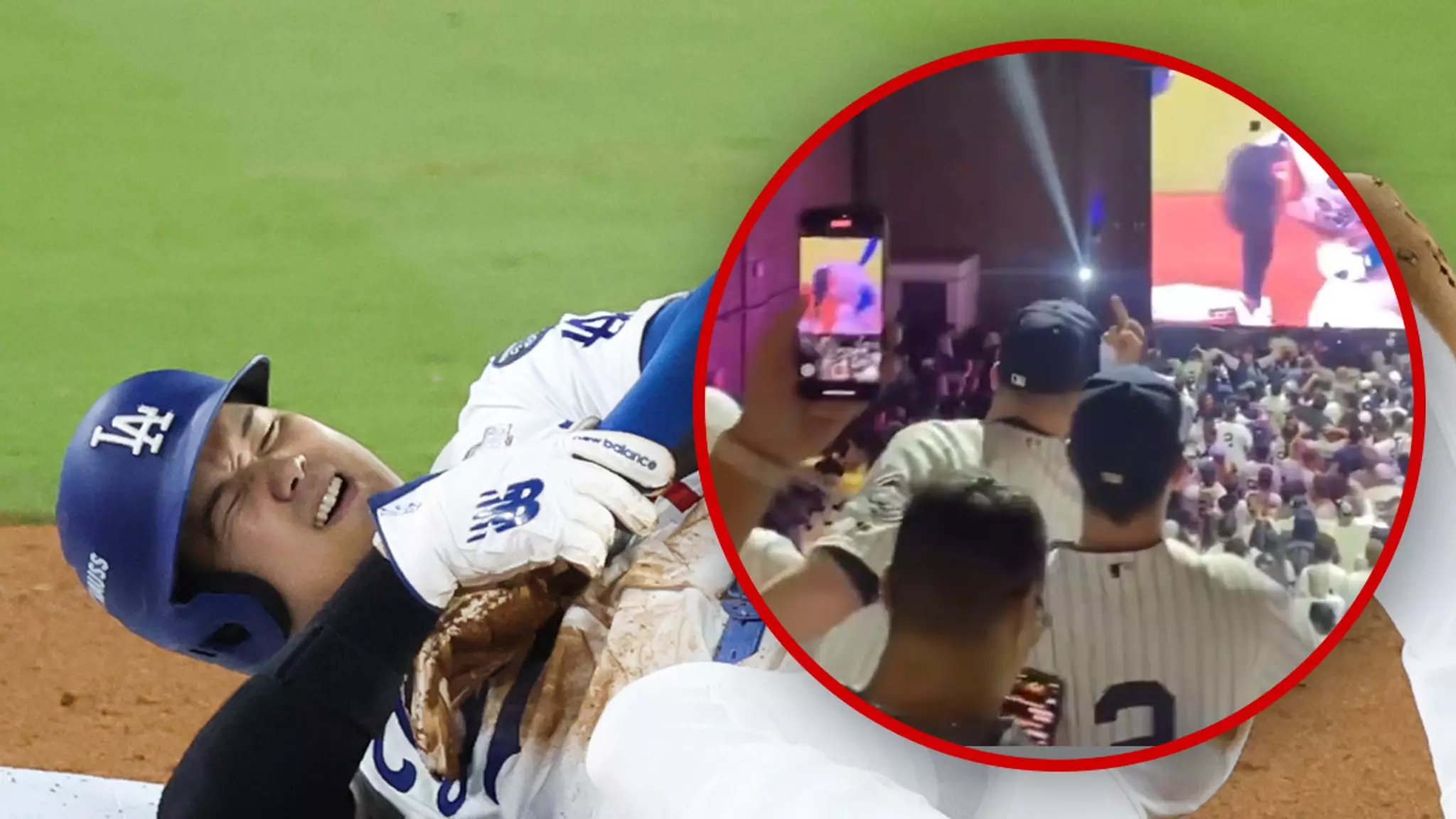On a Saturday night in October, the electrifying atmosphere of Dodger Stadium was disrupted by an unexpected incident that turned heads—Shohei Ohtani, the Los Angeles Dodgers’ star player, sustained a partial shoulder dislocation while attempting to steal second base. As fans witnessed the grim moment unfold, a palpable silence descended over the stadium. It was an incident that not only left Dodger fans in disbelief but also captivated the attention of baseball fans nationwide. The injury struck a somber note, especially since Ohtani had been instrumental in bringing the Dodgers to the postseason.
While many fans were left heartbroken, a curious twist emerged from the Bronx. Reports surfaced of Yankees fans celebrating Ohtani’s misfortune while watching the incident unfold on television. This eccentric reaction, captured on video inside a Bronx bar, showed a portion of them raising their glasses, pumping their fists, and even cheering at the prospect of Ohtani potentially missing critical games. Such behaviors raise ethical questions about sportsmanship, as it is a stark reminder of how rivalries can overshadow basic decorum. It prompts one to consider: where do we draw the line between healthy competition and unsportsmanlike conduct?
The technical term for Ohtani’s injury is shoulder subluxation, which can initially sound less severe than a full dislocation but is nonetheless serious. As he writhed in pain on the field, fans could only hope for a speedy recovery. Interestingly enough, Dodgers manager Dave Roberts projected an optimistic outlook for Ohtani’s return. It’s a twist of fate that fans are desperate for, especially given Ohtani’s significance in the postseason. He marked his first MLB playoff appearance since transitioning from Japan, an emotional journey of its own. Despite a turbulent night, the prospect of him playing again soon reignites enthusiasm, underscoring the notion that athletes often find perseverance in adversity.
Ohtani’s injury sheds light on the unpredictable and often cruel nature of sports. They bring joy, elation, and victory to fans; yet they can just as easily lead to heartbreak, igniting rivalries that incite both passion and, at times, undesirable behavior. The scoreboard may reflect wins and losses, but the true measure of rivalries should extend beyond mere victories. While it’s natural to root for one’s team, there ought to be a reverence for the integrity of the game and its players, regardless of the uniforms they wear.
While some fans reveled in Ohtani’s misfortune, it raises important considerations about sportsmanship and rivalry. The incident serves as a reminder that injuries affect not just the players but also the emotional landscape of the sport. As the postseason progresses, the focus should ideally shift from deriding injuries to celebrating talent and athleticism. After all, the essence of sports lies in respect, resilience, and the community they foster. Whether in pain or triumph, athletes like Shohei Ohtani remind us of the journey that sports entail—both on and off the field.

